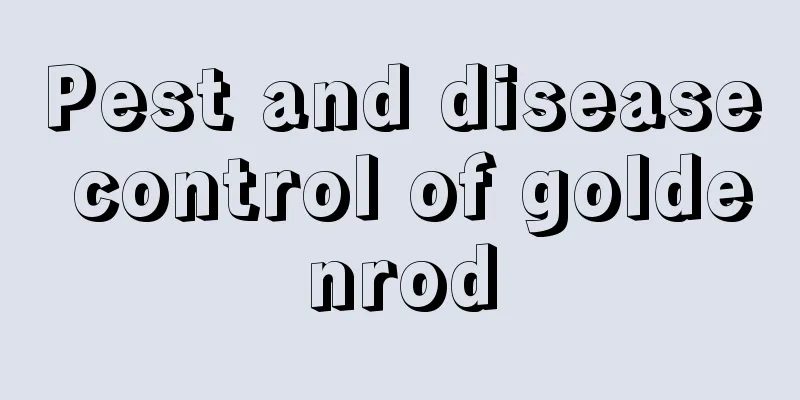Pest and disease control of goldenrod

1. Common diseases1. Spot diseaseThis disease mainly causes the death of plant leaves. At first, only small spots appear on the leaves, which then slowly expand and eventually harm other leaves. When a disease is discovered, the diseased leaves and fallen leaves need to be removed as soon as possible to prevent the spread of the disease. If the condition is serious, drug treatment is needed and mancozeb solution can be used for spraying. 2. Powdery mildewThe disease causes leaves to turn yellow and die prematurely, weakening the plant. When infected, the leaves of the plant will be covered with white powder, and the stems and flowers will also have the same reaction. For prevention and control, when plants shed their leaves in autumn, the fallen leaves need to be removed and at the same time the light should be increased to ensure 12 hours a day. For plants that have already become diseased, 5% barium polysulfide can be sprayed for disinfection. 3. Downy MildewThis disease affects the leaves of the plant, causing white mold to appear on the underside of the leaves. Before planting, a certain distance should be maintained, especially after rain, and attention should be paid to drainage to prevent water accumulation and moisture retention. When the disease occurs, you can spray 500 times diluted 70% ethylene phosphine·mancozeb powder once every ten days for one month, which can effectively kill bacteria. 4. DiseaseThe disease causes the roots and stems of plants to turn black, causing the plants to fall over and die. Before breeding, you should use soil from the previous year and turn it over and dry it several times before use, especially in the hot summer. If infected plants are found, they need to be completely destroyed to prevent further infection. In the early stages, you can spray pesticides for control. 2. Common Pests1. Nematode diseaseThis disease and pest is easy to occur in both the south and the north, and mainly erodes and infects the roots of plants. When it enters the roots of plants, it produces tumors of various shapes, causing the plants to grow slowly, become weak, or even wither. When the disease occurs, the infected plants should be burned to prevent infection, and the soil should be turned over and dried several times to kill the remaining insect eggs. |
<<: Disease and Pest Control of Rhododendron splendidum
>>: Disease and Pest Control of Red Clover
Recommend
How to water the palace lantern Kalanchoe
Don’t water unless the soil is dry, and water tho...
How to prune a cherry tree
When to prune cherry trees The pruning time for c...
How to grow diamond roses
Plant habits First of all, the environment it pre...
When is the best season to plant rapeseed? When to plant rapeseed and what are the steps?
It is best to choose loose and well-ventilated so...
What fertilizer is best for pink palm
Fertilization time for pink palm It is generally ...
How to water and fertilize golden lotus
Watering of nasturtium Nasturtium is a plant that...
Why does Schefflera spheniscus drop its leaves?
1. Improper watering The leaf shedding of Scheffl...
What flowers bloom at what time?
1. Morning Glory The flowering period of morning ...
Can bamboo be exposed to the sun? Can it be exposed to the sun?
Can bamboo be exposed to the sun? Bamboo can be e...
Succulent Planting
1. Choose the variety Before planting, you need t...
What is the suitable temperature for cucumber planting? Suitable growth temperature and planting season
Temperature requirements for cucumber cultivation...
Plum season
1. Ripe Season The season for plums to mature is ...
How to grow Qibao tree
The maintenance environment of Qibao Tree Brocade...
What is the best season to plant saffron? What month is the best planting time?
Saffron is a traditional Chinese medicinal materi...
Cultivation methods and precautions of Endless Summer Hydrangea
Endless Summer Hydrangea is relatively easy to gr...









